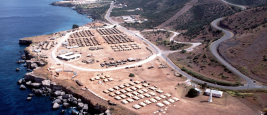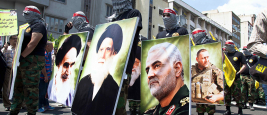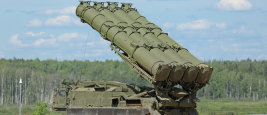
Morgan PAGLIA
Former Research Fellow, Security Studies Center
Research Interests:
- Military innovation
- Representations of future conflicts
- A2/AD
- Naval strategy
- European strategic autonomy
Morgan Paglia was a research fellow at the French Institute of International Relations (Ifri) from 2018 to 2020. Prior to joining Ifri's Security Studies Center in 2018, he gained professional experience in the defense sector, notably at Thalès' Institutional Affairs department, and graduated from the Political Studies Institutes of Aix-en-Provence and Sciences Po Toulouse.
Morgan Paglia is a PhD candidate at the Catholic University of Paris and Paris Science and Letters (PSL) where his research focuses on the recent evolutions of the United States defense strategy since the first Gulf War. While at Ifri, he blogged at Ultima Ratio.
From basic training to the conduct of international exercises, operational readiness planning aim to make the components of military capabilities (equipment, doctrines, operational know-hows) consistent with the operational contracts decided at the strategic level.
Throughout history, great powers have relied upon forward military bases, either to support their interventions in areas of interest, to re-assure allies or to control a territory.
If Iran is a key player in the Middle East, it is in no small part because of its extensive network of armed militia, which it uses as proxies.
France is one of the few nations in the world to benefit from a permanent global military presence. With more than 10,000 military personnel from all three services, deployed across the five continents and the three main oceanic basins, it benefits from the second largest network of...
As the world stage is marked by renewed great power competition, Europe lacks proper means to assert and defend its own independent political view. Despite this backdrop, the authors of this report contend that the current stalemate can be overcome with a collective and inclusive approach.
Although it had never entirely disappeared, the surface-to-air threat was mitigated for three decades by Western air superiority. It now benefits from a modernization and dissemination momentum that will increasingly hinder expeditionary forces’ freedom of action.









